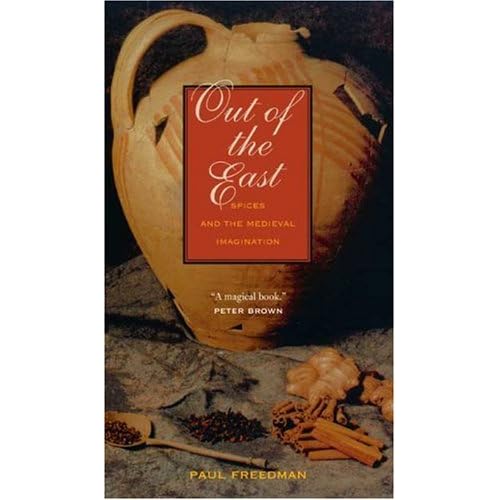
This book was a real treat, and not just because much of it was about food and dining. It's one of the best-written medieval/early modern history books I have read in a long time, and one of the most original.
If you have ever eaten, tried cooking or just read about aristocratic food in the Middle Ages -- and aristocratic food is almost all we know about -- you already are aware that medieval feasts included a lot of highly spiced foods. The spices used in "savory" dishes then are hardly ever used today except perhaps in desserts; some, like grains of paradise and zedoary are hardly known. There has been some good scholarly work in recent years as to why medieval cooking and modern European differ so much; Terence Scully, for instance, has explained the connection between the ancient and medieval medical theories involving the four humours and medieval recipies and feast design. But Paul Freedman's book probably is accessible to more readers while actually covering a great deal of novel material.
One very interesting subject Freedman covers is how the appeal of some of the favorite exotic spices faded dramatically when European merchants gained direct, routine access to them. People still wanted cloves and nutmeg, but they no longer thought of them as powerful, almost spiritual substances. And when it became known that grains of paradise came from the mundane West Africa (precisely, "the Grain Coast") and not the earthly paradise, Europeans slowly lost interest in them.
There is much more in this book -- lots about early European exploration and the role of spices in motivating it -- and I highly recommend it to anyone who finds this review in the least interesting.
Update: Phil Feller directs us to an NPR interview with Freedman.
That looks like a beautiful book. I have tried some medieval recipes, but haven't yet managed the whole goose-stuffed-with-a-duck-stuffed-with-a-chicken exercise.
ReplyDelete